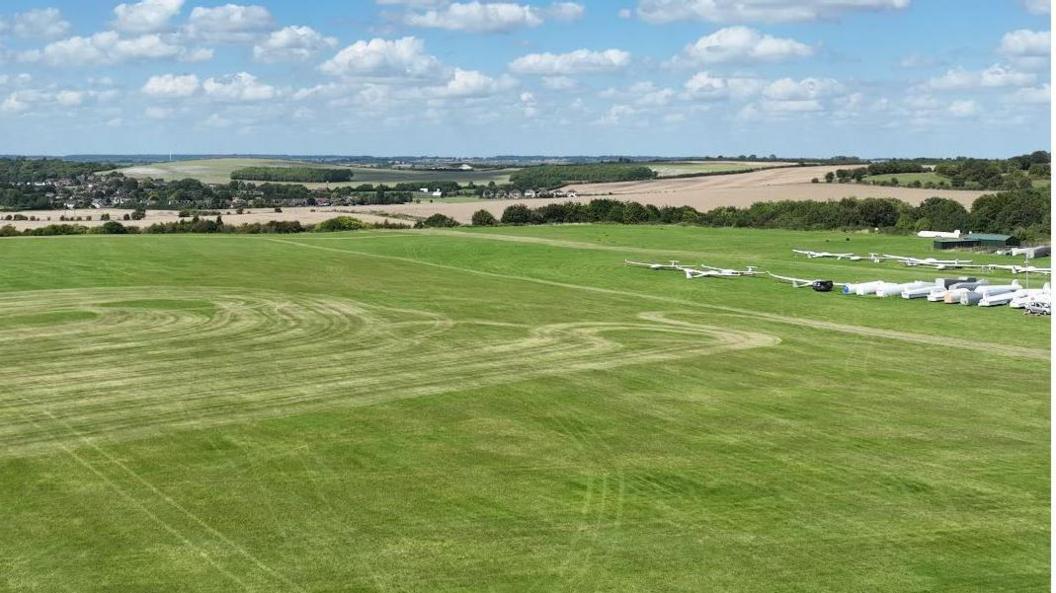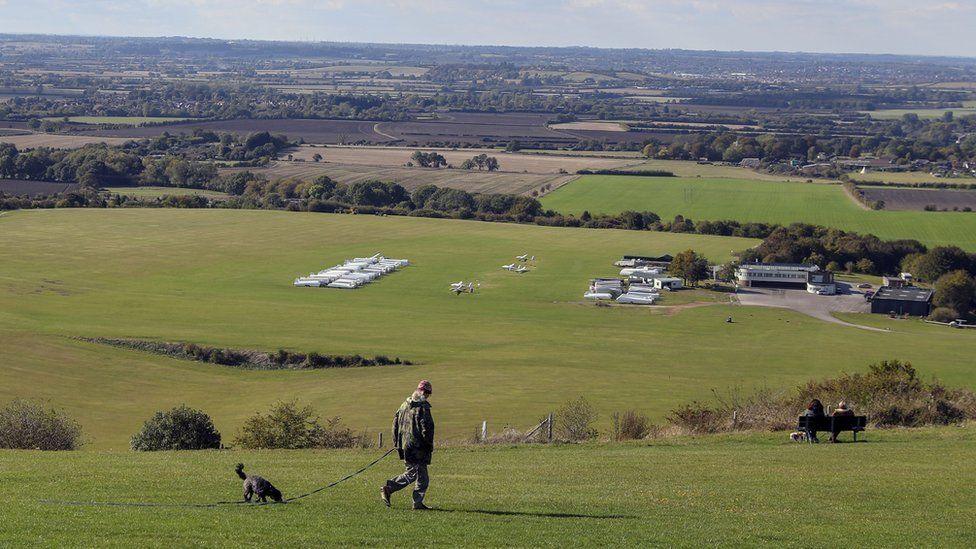Pilot died in glider crash after tow rope detached

The crash happened in August 2023 at the London Gliding Club in Bedfordshire
- Published
A glider pilot died in a crash after his tow-rope became detached from another aircraft during take-off, a report has found.
The 47-year-old, who had 131 hours of flying experience, died on 16 August 2023 at the London Gliding Club, which is based at Dunstable Downs in Bedfordshire.
After take off, the Schleicher ASW swerved left and went into a spin before hitting the ground “nose first”.
The Air Accidents Investigation Branch, external (AAIB) could not “conclusively” determine how or why the tow rope disconnected prematurely, and did not find any mechanical issues or defects.
It also said the pilot “found himself in a challenging position” having been “startled or surprised”, which could have affected his performance and decision-making.

People from the airfield arrived at the scene of the accident within 80 seconds
‘Unstable’
Eyewitnesses described seeing the glider’s “vertical positioning” as “unstable” early in the launch.
The AAIB said that although the pilot appeared to regain some control, witnesses noticed the tow rope had become detached from plane.
The glider continued to climb to between 50ft and 100ft (15.2m to 30.5m) “before it entered a steep left turn with low and reducing airspeed”.
“With little height or speed available to him [the pilot] he needed to quickly decide on an appropriate course of action," the AAIB said.
"That he decided to turn back toward the airfield indicates he did not consider landing ahead was a viable option. Tragically, at the height and speed he found himself, turning back proved unachievable."
People from the airfield arrived at the scene of the accident within 80 seconds, but the report said “nothing could be done to save the pilot who had suffered fatal injuries”.
The AAIB added: “This accident serves to highlight how challenging it is to make effective decisions when something goes wrong unexpectedly at a critical stage of flight.
“While pilots may verbalise their intentions as part of an eventualities brief, being able to enact the plan when startled, surprised and under extreme pressure, is not necessarily assured.”
Follow Beds, Herts and Bucks news on Facebook, external, Instagram, external and X, external. Got a story? Email eastofenglandnews@bbc.co.uk, external or WhatsApp us on 0800 169 1830